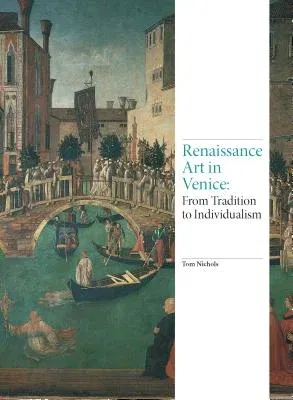Tom Nichols
(Author)Renaissance Art in Venice: From Tradition to IndividualismHardcover, 30 August 2016

Qty
1
Turbo
Ships in 2 - 3 days
In Stock
Free Delivery
Cash on Delivery
15 Days
Free Returns
Secure Checkout

Print Length
224 pages
Language
English
Publisher
Laurence King
Date Published
30 Aug 2016
ISBN-10
1780678517
ISBN-13
9781780678511
Description
Product Details
Author:
Book Format:
Hardcover
Country of Origin:
US
Date Published:
30 August 2016
Dimensions:
24.64 x
17.02 x
2.54 cm
ISBN-10:
1780678517
ISBN-13:
9781780678511
Language:
English
Pages:
224
Publisher:
Weight:
861.82 gm